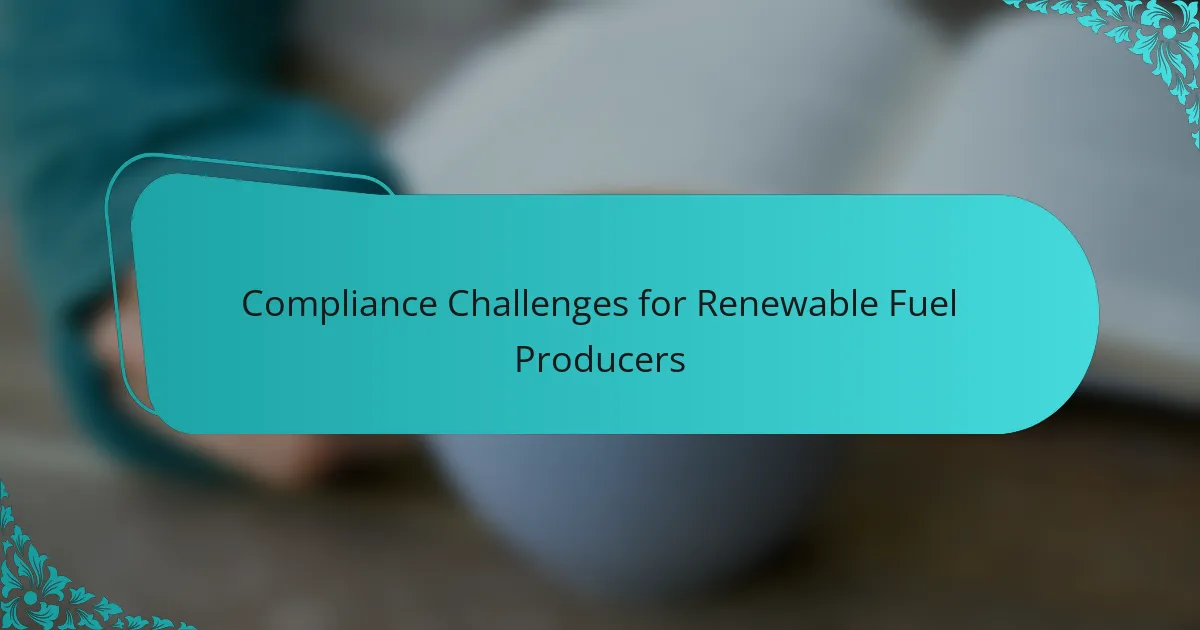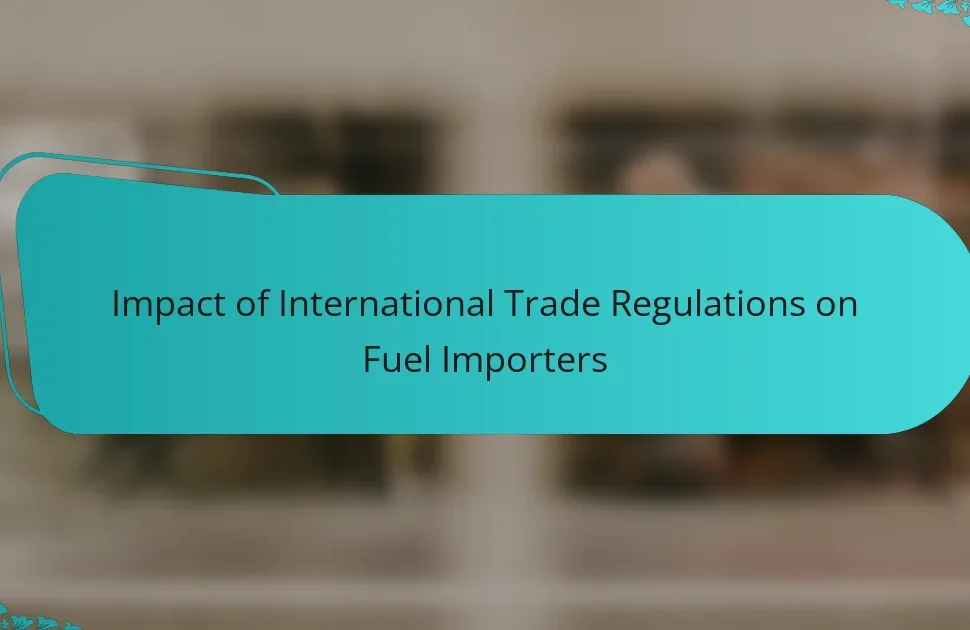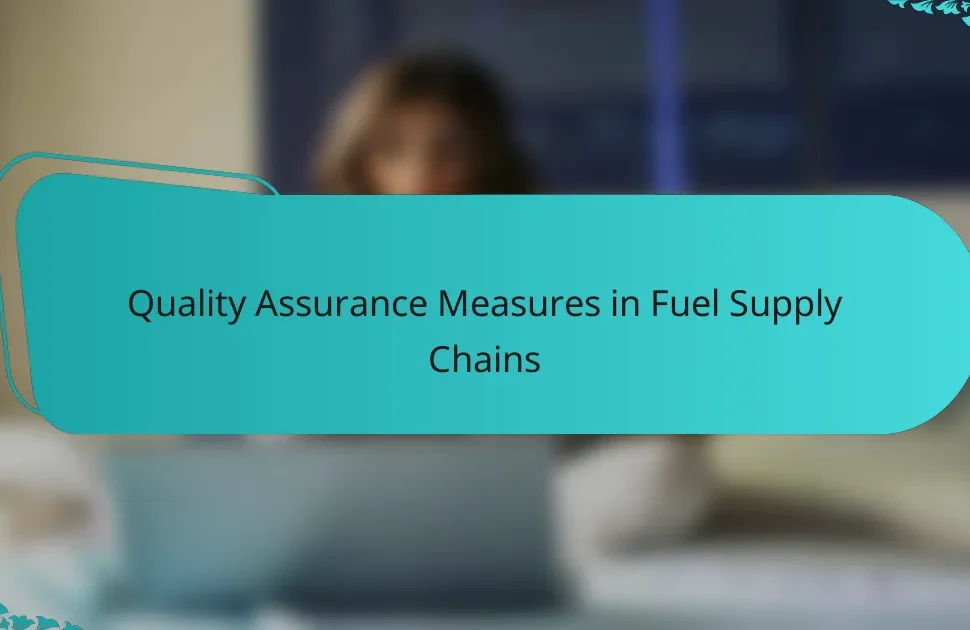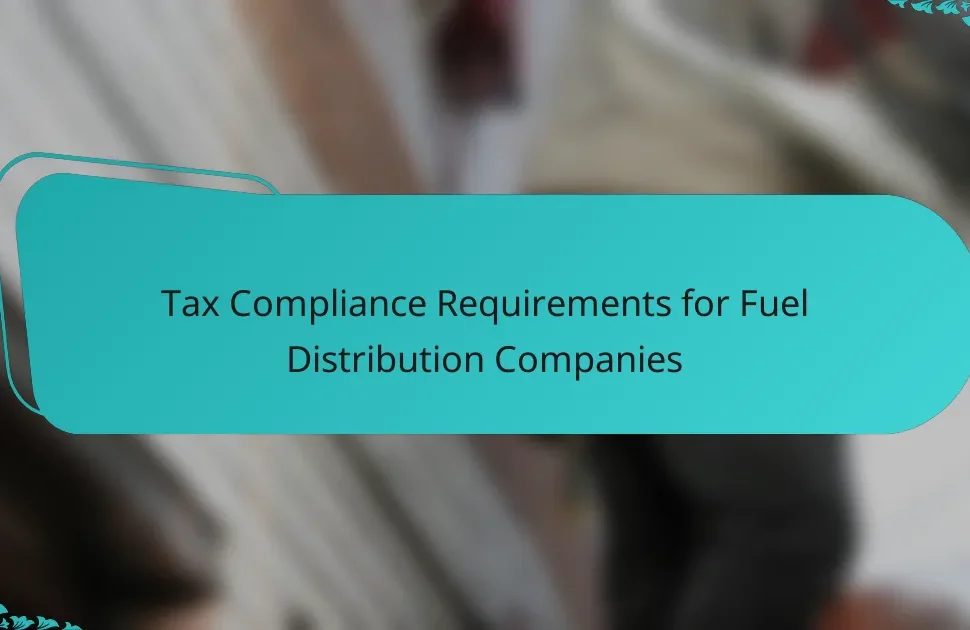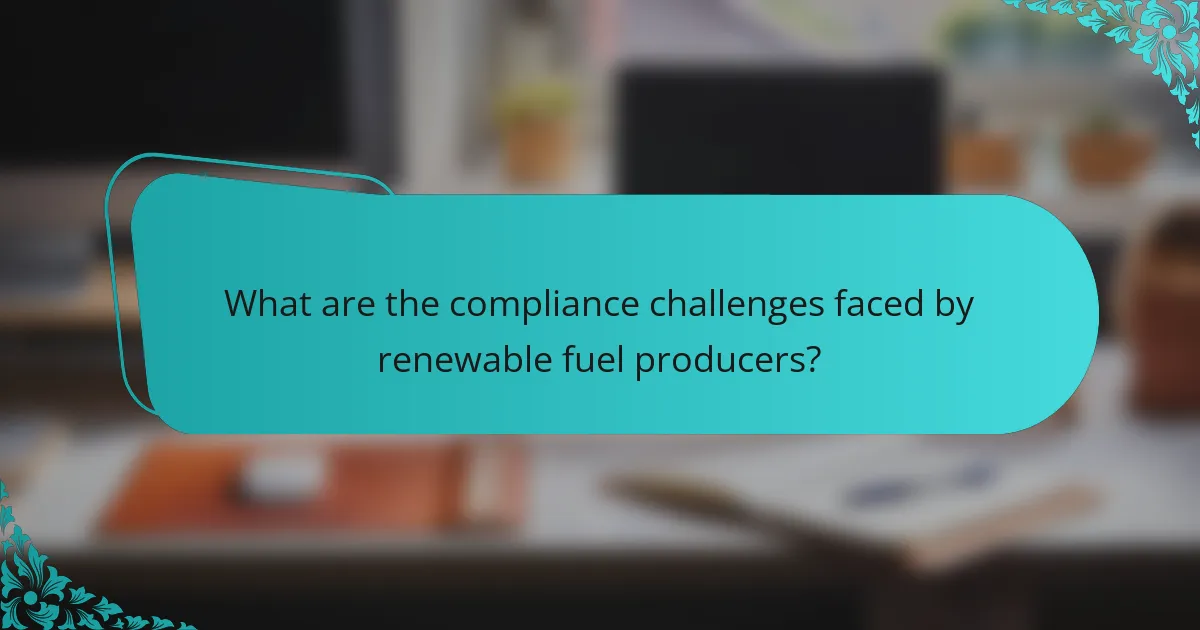
What are the compliance challenges faced by renewable fuel producers?
Renewable fuel producers face several compliance challenges. Regulatory frameworks are complex and vary by region. Producers must navigate local, state, and federal regulations. Compliance with the Renewable Fuel Standard (RFS) is essential in the United States. Meeting greenhouse gas (GHG) emissions targets is another critical requirement. Producers often struggle with documentation and reporting obligations. Additionally, they face challenges in obtaining necessary permits. Changes in policy can create uncertainty in compliance efforts. These factors can hinder operational efficiency and increase costs.
How do regulatory frameworks impact renewable fuel production?
Regulatory frameworks significantly influence renewable fuel production. They establish guidelines that dictate production standards, safety protocols, and environmental impacts. Compliance with these regulations can enhance or restrict market entry for producers. For instance, the Renewable Fuel Standard (RFS) in the United States mandates specific volumes of renewable fuels, driving production levels. Additionally, regulations can incentivize innovation in production technologies through grants and tax credits. Conversely, stringent regulations may increase operational costs, impacting profitability. Studies indicate that countries with supportive regulatory environments see higher investments in renewable fuel technologies. These frameworks shape the overall landscape for renewable fuel production, determining its growth and sustainability.
What specific regulations must renewable fuel producers adhere to?
Renewable fuel producers must adhere to regulations set by the Environmental Protection Agency (EPA) and the Department of Energy (DOE). These regulations include the Renewable Fuel Standard (RFS), which mandates specific volumes of renewable fuels to be blended into transportation fuel. Producers must also comply with greenhouse gas emissions regulations that require lifecycle assessments of fuel emissions. Additionally, they must meet safety and quality standards as outlined in the Clean Air Act. Compliance with state-specific regulations is also necessary, as many states have their own renewable fuel mandates. Violations of these regulations can result in penalties or loss of production rights.
How do these regulations vary by region or country?
Regulations for renewable fuel producers vary significantly by region and country. In the United States, the Renewable Fuel Standard (RFS) mandates specific volumes of renewable fuels. In the European Union, the Renewable Energy Directive sets different targets for member states. Countries like Brazil implement their own biofuel mandates, which differ from those in North America and Europe. Each region assesses sustainability criteria differently, impacting compliance. For instance, the U.S. focuses on lifecycle greenhouse gas emissions, while the EU emphasizes sustainability and land use. These regulatory frameworks can lead to diverse compliance challenges for producers operating in multiple jurisdictions.
What are the common barriers to compliance for renewable fuel producers?
Common barriers to compliance for renewable fuel producers include regulatory complexity, high costs, and technology limitations. Regulatory complexity arises from varying state and federal regulations that can confuse producers. High costs are associated with the investment needed for compliance measures and technology upgrades. Additionally, technology limitations hinder the adoption of efficient production methods. A report by the U.S. Department of Energy highlights that nearly 60% of producers struggle with regulatory compliance due to these factors.
How does the complexity of regulations affect compliance efforts?
The complexity of regulations significantly hinders compliance efforts. Complex regulations create ambiguity and confusion for renewable fuel producers. This confusion can lead to unintentional non-compliance. A study by the National Renewable Energy Laboratory found that over 60% of producers struggle to understand regulatory requirements. Additionally, intricate regulations require more resources for monitoring and reporting. This diverts attention from core business activities. Consequently, compliance costs increase, impacting overall profitability. Therefore, regulatory complexity poses a substantial challenge for renewable fuel producers.
What role do financial constraints play in compliance challenges?
Financial constraints significantly hinder compliance efforts for renewable fuel producers. Limited financial resources restrict investments in necessary technologies and processes. This can lead to difficulties in meeting regulatory standards. For instance, producers may lack funds for advanced equipment that ensures compliance with emissions regulations. Additionally, financial limitations may prevent hiring skilled personnel who understand compliance requirements. As a result, the risk of non-compliance increases, potentially leading to fines or legal action. According to a 2021 report by the Renewable Fuel Association, 40% of small producers cited financial constraints as a major barrier to compliance. This illustrates the critical link between financial health and regulatory adherence in the renewable fuel sector.
Why is compliance critical for renewable fuel producers?
Compliance is critical for renewable fuel producers to ensure adherence to legal and regulatory standards. These standards are designed to promote environmental sustainability and public safety. Non-compliance can lead to significant penalties, including fines and operational shutdowns. Additionally, compliance fosters consumer trust in renewable fuels. It assures stakeholders that products meet safety and environmental criteria. For instance, the Renewable Fuel Standard mandates specific production volumes and greenhouse gas reductions. Failure to meet these requirements can hinder market access. In 2021, the U.S. Environmental Protection Agency reported over $1 million in fines for non-compliance among renewable fuel producers. Thus, compliance is essential for operational viability and market reputation.
What are the potential consequences of non-compliance?
The potential consequences of non-compliance for renewable fuel producers include financial penalties and legal actions. Regulatory agencies impose fines that can significantly impact a company’s finances. Non-compliance can also lead to the suspension or revocation of operating licenses. This can halt production and disrupt business operations. Additionally, non-compliance may damage a company’s reputation. Loss of consumer trust can result in decreased sales. In some cases, non-compliance can lead to criminal charges against responsible individuals. Compliance with regulations is essential to avoid these serious repercussions.
How does compliance influence market competitiveness?
Compliance directly influences market competitiveness by establishing standards that companies must meet. Adhering to regulations can enhance a company’s reputation and consumer trust. This compliance can also lead to operational efficiencies and cost savings. Companies that exceed compliance standards may differentiate themselves in the market. In renewable fuels, compliance with environmental regulations can attract investment. For instance, firms that meet stringent emissions standards often gain access to government incentives. Research indicates that compliant companies tend to perform better financially in their sectors. Thus, compliance serves as both a barrier to entry and a competitive advantage.
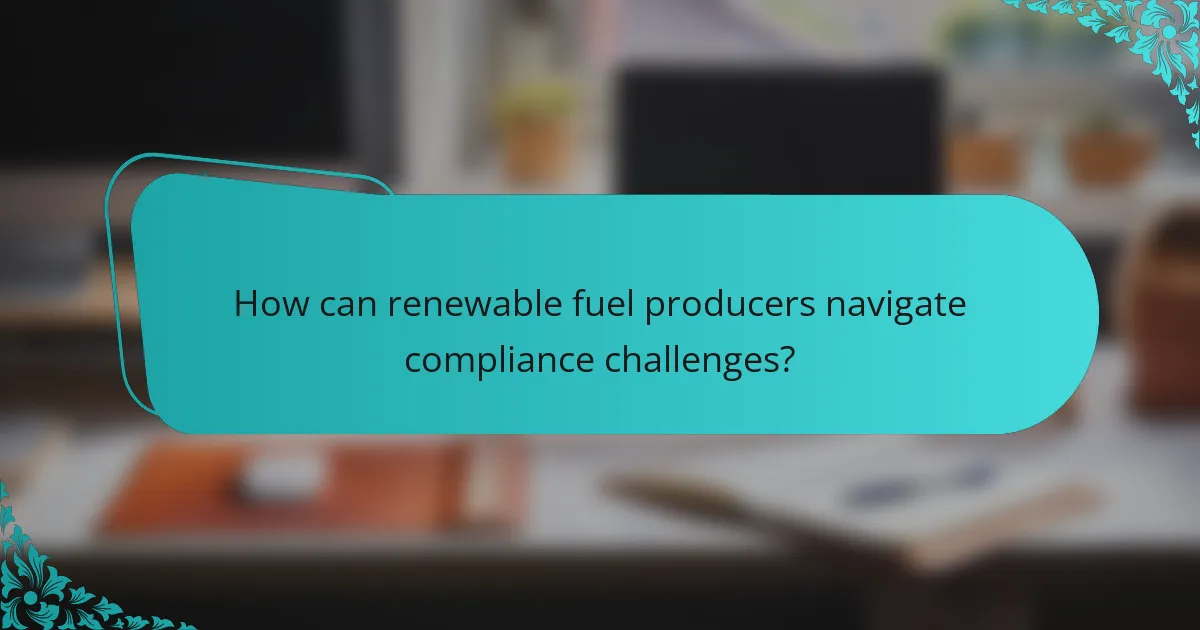
How can renewable fuel producers navigate compliance challenges?
Renewable fuel producers can navigate compliance challenges by implementing robust regulatory frameworks. These frameworks should include thorough understanding of federal and state regulations. Staying informed about changes in legislation is crucial for compliance. Regular training for staff on compliance requirements enhances awareness. Collaborating with industry associations provides access to resources and best practices. Utilizing compliance management software can streamline tracking and reporting processes. Engaging legal experts ensures adherence to complex regulations. Continuous monitoring of operations helps identify and address compliance gaps promptly.
What strategies can be implemented to ensure compliance?
Implementing effective compliance strategies involves establishing clear guidelines and regular audits. Renewable fuel producers should create comprehensive compliance manuals that outline regulatory requirements. Training programs for employees can ensure everyone understands these regulations. Regular internal audits help identify potential compliance gaps early. Collaboration with legal experts can provide insights into changing regulations. Utilizing technology for monitoring and reporting can streamline compliance processes. Engaging with industry associations can offer additional resources and support. These strategies collectively enhance adherence to compliance standards in the renewable fuel sector.
How can producers stay updated on regulatory changes?
Producers can stay updated on regulatory changes by subscribing to industry newsletters and regulatory agency updates. These sources provide timely information about new regulations and compliance requirements. Attending industry conferences and workshops also offers insights into upcoming changes. Networking with peers can facilitate the sharing of relevant information. Engaging with industry associations often leads to access to resources and expert guidance. Utilizing online platforms dedicated to regulatory news can keep producers informed. Monitoring government websites for announcements ensures awareness of official updates. These methods collectively help producers navigate the evolving regulatory landscape effectively.
What role do compliance management systems play in this process?
Compliance management systems ensure adherence to regulations in renewable fuel production. They help organizations identify applicable laws and standards. These systems streamline documentation and reporting processes. They facilitate audits and assessments to ensure compliance. Compliance management systems also track changes in regulations. This allows producers to adapt their practices promptly. Furthermore, they mitigate risks associated with non-compliance. Effective systems can enhance operational efficiency and reputation.
What best practices should renewable fuel producers adopt?
Renewable fuel producers should adopt best practices that enhance sustainability and regulatory compliance. They must implement robust quality management systems to ensure product consistency. Regular audits and inspections can help maintain compliance with environmental regulations. Engaging in transparent reporting fosters trust with stakeholders and regulators. Utilizing advanced technologies can optimize production efficiency and reduce waste. Collaborating with industry peers can facilitate knowledge sharing and innovation. Training employees on compliance and safety measures is crucial for operational success. Finally, staying informed about regulatory changes ensures proactive adjustments to practices.
How can collaboration with industry groups aid in compliance?
Collaboration with industry groups can significantly aid in compliance by providing shared resources and expertise. Industry groups often have access to comprehensive regulatory information. They can offer training and guidance on compliance best practices. This collaboration fosters a collective understanding of regulations among members. It also enables the sharing of strategies for overcoming compliance challenges. Additionally, industry groups can advocate for favorable regulatory changes on behalf of their members. Evidence shows that companies involved in industry groups report higher compliance rates. For example, a study by the National Renewable Energy Laboratory found that collaborative efforts led to a 30% decrease in compliance-related issues among participating renewable fuel producers.
What training and resources are available for compliance education?
Compliance education training and resources include online courses, workshops, and certification programs. Organizations like the National Renewable Energy Laboratory offer training specific to renewable fuels. The Renewable Fuels Association provides resources and webinars for industry compliance. Additionally, the Environmental Protection Agency offers guidelines and training materials. These resources help ensure adherence to regulations. They also provide updates on compliance requirements. Accessing these materials supports continuous education in the field.
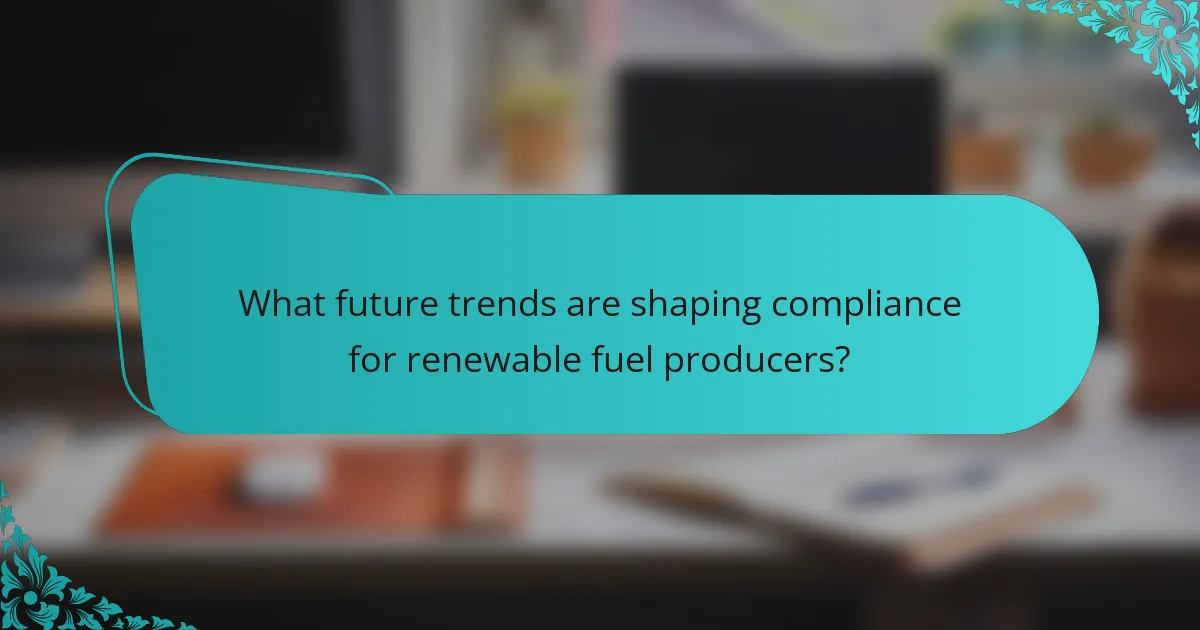
What future trends are shaping compliance for renewable fuel producers?
Future trends shaping compliance for renewable fuel producers include stricter regulatory frameworks and increased transparency requirements. Governments worldwide are implementing more rigorous emissions standards. These standards aim to reduce greenhouse gas emissions and promote sustainability. Additionally, advancements in technology are facilitating better tracking and reporting of renewable fuel production processes. Blockchain technology, for instance, enhances traceability and accountability. Furthermore, there is a growing emphasis on lifecycle assessments of fuels. This trend ensures that compliance considers the entire production process, from feedstock sourcing to end-use emissions. Industry collaboration is also on the rise, as producers work together to meet compliance challenges. These trends reflect a shift towards more sustainable practices in the renewable fuel sector.
How will emerging technologies impact compliance efforts?
Emerging technologies will enhance compliance efforts by automating data collection and reporting processes. Automation reduces human error and increases efficiency in compliance management. Technologies such as blockchain ensure transparency and traceability in transactions. This is crucial for renewable fuel producers to meet regulatory requirements. Additionally, artificial intelligence can analyze compliance risks in real-time. AI-driven insights enable proactive measures to address potential non-compliance issues. According to a report by PwC, 78% of companies believe technology improves compliance effectiveness. Overall, these technologies streamline compliance processes and support adherence to regulations.
What innovations are being developed to assist with compliance?
Innovations being developed to assist with compliance in renewable fuel production include advanced monitoring systems and automated reporting tools. These systems utilize real-time data analytics to track emissions and fuel quality. Blockchain technology is also being integrated to enhance transparency in supply chains. Machine learning algorithms are being employed to predict compliance risks and optimize processes. Furthermore, mobile applications are being created to facilitate easier access to compliance documentation. These innovations aim to streamline compliance processes and reduce administrative burdens. The adoption of these technologies can lead to improved regulatory adherence and operational efficiency.
What are the anticipated changes in regulations for renewable fuels?
Anticipated changes in regulations for renewable fuels include stricter greenhouse gas emissions standards. These changes aim to promote cleaner energy sources and reduce carbon footprints. Additionally, there may be increased mandates for blending renewable fuels with traditional fossil fuels. Recent legislative trends indicate a push for higher renewable fuel usage in transportation and heating sectors. Furthermore, financial incentives for producers may be adjusted to encourage innovation and compliance. The U.S. Environmental Protection Agency has proposed updates to the Renewable Fuel Standard, reflecting these anticipated shifts. These updates are expected to enhance sustainability and drive investment in renewable energy technologies.
How might sustainability goals influence future compliance requirements?
Sustainability goals will likely lead to stricter compliance requirements for renewable fuel producers. As governments and organizations prioritize environmental impact, regulations will evolve to reflect these goals. For instance, emissions reduction targets may become legally binding. This shift will require producers to adopt cleaner technologies and practices. Additionally, transparency in sourcing and production methods may be mandated. Compliance audits may increase in frequency and rigor. The European Union’s Green Deal exemplifies this trend, aiming to make Europe climate-neutral by 2050. Such initiatives illustrate the growing connection between sustainability objectives and regulatory frameworks.
What practical tips can renewable fuel producers use to improve compliance?
Renewable fuel producers can improve compliance by implementing a robust compliance management system. This system should include regular training for employees on regulations and standards. Producers must also establish clear documentation processes for tracking compliance activities. Regular audits can identify areas needing improvement. Engaging with regulatory bodies can provide insights into compliance expectations. Utilizing technology for real-time monitoring can enhance adherence to regulations. Collaborating with industry peers can share best practices and compliance strategies. Lastly, staying updated on regulatory changes is essential for ongoing compliance.
The main entity of the article is “compliance challenges for renewable fuel producers.” The article outlines the complex regulatory frameworks that renewable fuel producers must navigate, including local, state, and federal regulations such as the Renewable Fuel Standard (RFS) and greenhouse gas emissions targets. It discusses common barriers to compliance, including regulatory complexity, financial constraints, and technology limitations, as well as the critical importance of compliance for operational viability and market competitiveness. Additionally, the article explores strategies for overcoming compliance challenges, the role of emerging technologies, and anticipated changes in regulations influenced by sustainability goals.
